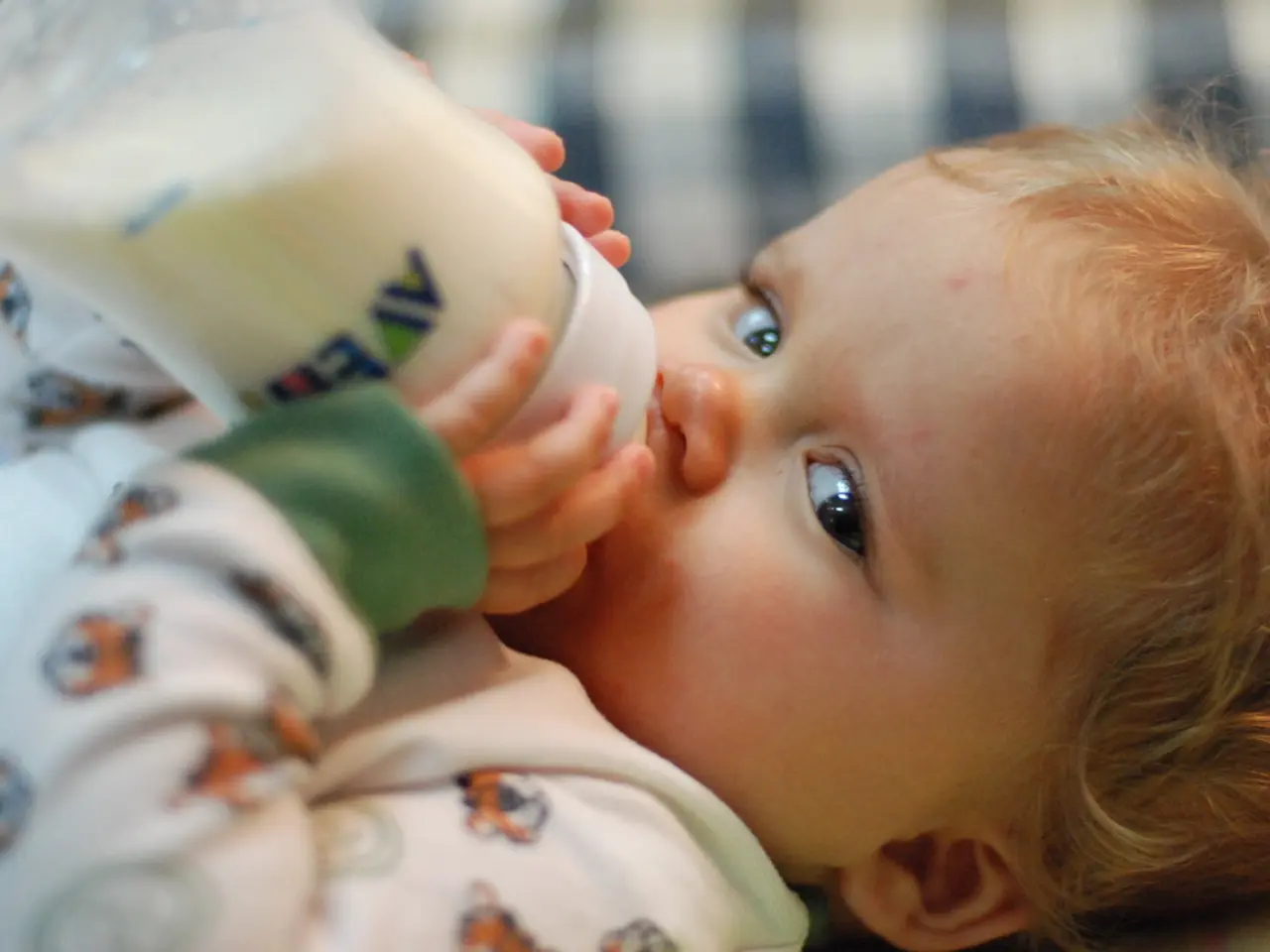Low-Carb Dieting and Nursing: Potential Risks and Suggestions
Low-carb diets might seem like a good idea to shed those extra pregnancy pounds, but let's dive into the realities of going low-carb during breastfeeding.
Gotta Have 'Em: Carbs While Nursing
To keep up with the baby's milk production, you'll need to consume a healthy amount of carbs, approximately 210 grams daily[1]. Stick to wholesome sources, such as whole grains, brown rice, oatmeal, and legumes, while avoiding refined sugars and polished grains like white rice and baked goods. Dairy products are also good choices for obtaining your daily carb intake[1].
Risks of Going Low-Carb
Jumping headfirst into a low-carb diet could disrupt your milk supply, leading to potential issues with the quality of your milk[1]. Adequate carb intake ensures your body produces enough energy for milk production, so going low-carb can spell trouble for both you and your baby[1].
1. Less Milk, Less Nutrition
A sudden drop in carbohydrates can lead to quick weight loss, which isn't ideal during nursing. Your milk supply relies on the consistent energy provided by carbs, so a low-carb diet might result in a diminished nutritional intake for your baby[1].
2. Questionable Milk Quality
A rough diet means your body might tap into stored fats for energy, releasing potentially harmful toxins into your breast milk. This is particularly concerning when it comes to ketogenic diets, where the body produces ketones. We're still unclear whether ketones can seep into breast milk and cause harm to the baby[2].
3. Artificial Sweeteners: Friend or Foe?
On a low-carb diet, you may turn to artificial sweeteners to satisfy your sweet tooth. While there's no concrete evidence linking artificial sweeteners with health issues during breastfeeding, many mothers opt for more natural sweeteners[1].
Low-Carb Lowdown for Breastfeeding Moms
If you're determined to go low-carb, here are some tips to help you stay healthy and maintain your milk supply:
- Aim for 50-60 grams of carbs per day during breastfeeding[1].
- Drink at least 8-10 glasses of water daily to stay hydrated[1].
- Take it slow – don't rush into the diet. Instead, ease into it gradually[1].
- Ensure you're consuming at least 1800 calories every day[1].
- Stop the diet if you notice a drop in milk production or overall supply[1].
- Wait until your baby is at least 3-6 months old before starting your low-carb diet[1].
- Be mindful of changes in your baby's diaper and weight gain[1].
FAQs
Does a low-carb diet affect the taste of breast milk?Some research suggests that a low-carb diet might subtly change the taste of breast milk, but most babies adjust without fuss[1].
Can a low-carb diet help manage lactation-related cravings?A low-carb diet might help reduce sugar cravings by stabilizing blood sugar levels, but for some, it may result in increased hunger[1].
Can a low-carb diet support hormonal balance during lactation?A low-carb diet could help regulate hormones such as insulin and cortisol, but going too low on carbohydrates might disrupt the prolactin levels required for milk production[3].
Given these potential challenges, it's advisable to maintain a balanced, nutrient-rich diet during breastfeeding to support both your health and that of your baby[1][4][5]. Incorporate plenty of green veggies, whole grains, legumes, nuts, oils, and lean meats for optimal nourishment[1].
References/Resources:
- National Library of Medicine - Effects of low-carbohydrate diets v. low-fat diets on body weight and cardiovascular risk factors: a meta-analysis of randomized controlled trials
- National Library of Medicine - Ketogenic Diet-Induced Severe Ketoacidosis in a Lactating Woman: A Case Report and Review of the Literature
- EatRight.org - Losing Weight While Breastfeeding
- Harvard T.H. Chan - Carbohydrates
- La Leche League International
- Maintaining a healthy amount of carbs during breastfeeding is essential for milk production, with an approximate daily intake of 210 grams.
- Swapping refined sugars and polished grains for whole grain sources, brown rice, oatmeal, legumes, and dairy products is recommended for obtaining daily carbs.
- A sudden drop in carbohydrates during breastfeeding could lead to potential issues with milk quality and quantity.
- To ensure a balanced and nutrient-rich diet during breastfeeding, incorporate green vegetables, whole grains, legumes, nuts, oils, lean meats, and prioritize nutrient-dense choices over fad diets like low-carb.








